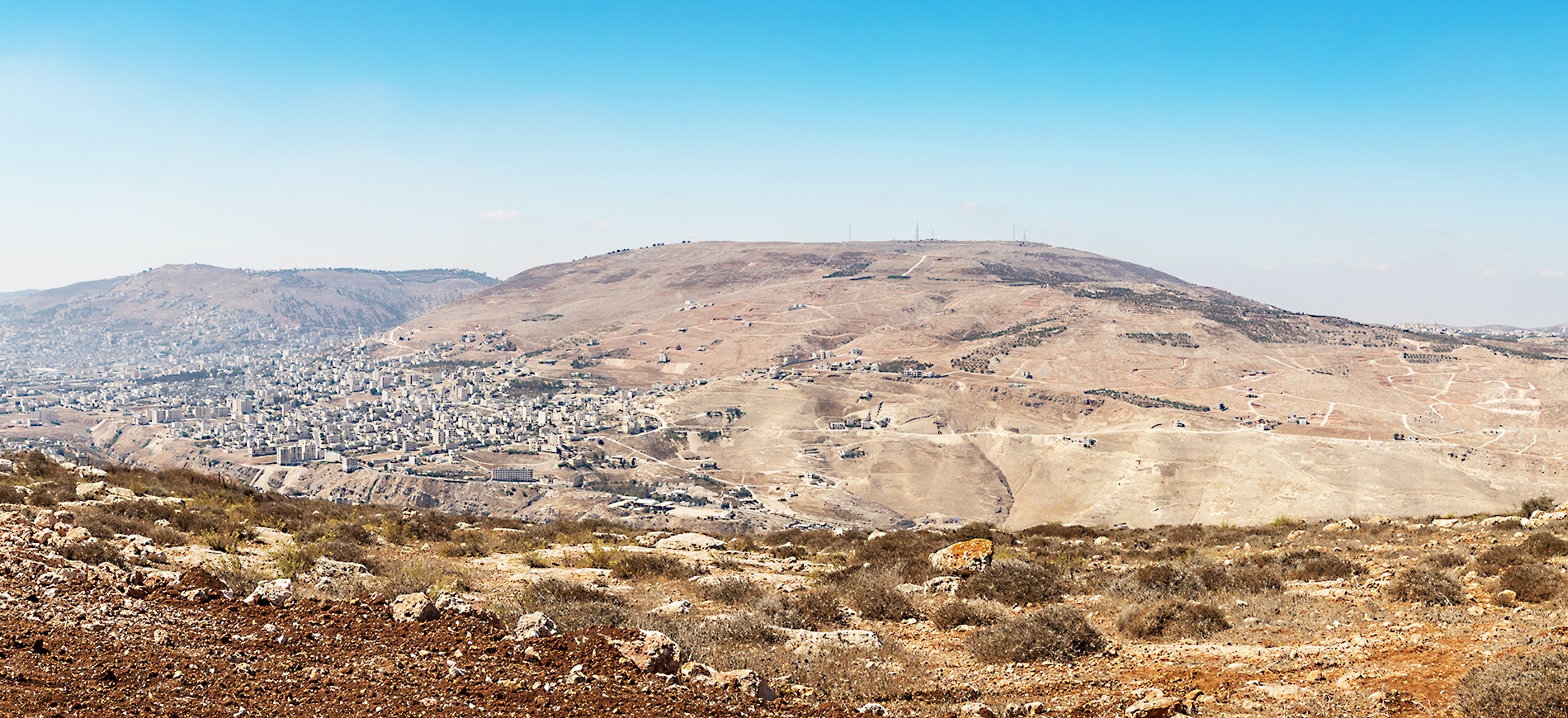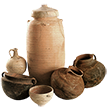
Bible, History, Archaeology
History,
Archaeology
Home > Artifacts > AT artifacts >
The altar on Mount Ebal,
the biblical altar of Joshua in Samaria?
On the slope of a hill in Samaria called Mount Ebal, near Shechem, Haifa University professor Adam Zertal discovered a strange rectangular assemblage of rough stones in 1982.
Its excavation revealed numerous artifacts that seem to identify it with an ancient proto-Israelite sacrificial altar.
The characteristics of the site even seem to correspond to a specific episode in the First Alliance (Old Testament): Joshua's construction of an altar on Mount Ebal. In a book aimed at a wide readership, the discoverer of the site recounts this astonishing archaeological and human adventure with strong historical and religious implications.
A singular mound of stones
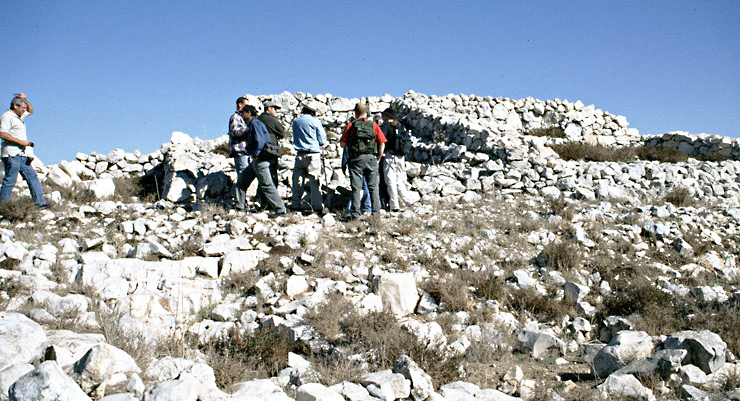
Image opposite: the step-by-step uncovering of the sacrificial altar at Mount Ebal. Adam Zertal, University of Haifa.
Excavations reveal a collection of archaeological objects that baffle archaeologists: pottery shards, large quantities of ash, charred mammal bones, carved Egyptian scarabs and buried vases containing various handicrafts. Examination of these finds indicates that the ensemble dates back to antiquity, and provides a precise date for the site's occupation in the 13th century BC.
A discovery difficult to interpret
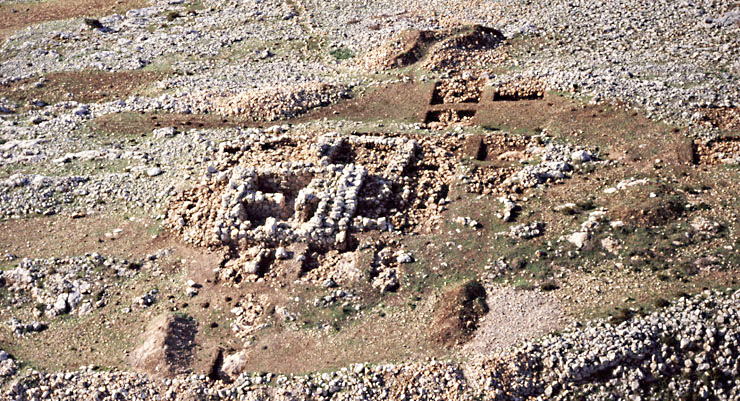
Image opposite: aerial view of the enclosure with the sacrificial altar at its center. Adam Zertal, University of Haifa.
The study of the pottery, whose style indicates the period of production, is compared with that of two Egyptian amulets carved in the shape of scarabs and dating back to the time of Ramses II (1279-1213 BC). The ages coincide and unambiguously date them to the 13th century BC.
The site appears to have been used only briefly, perhaps for a single event.
A general view of the area around the city of Nablus (biblical Shechem) on the left. In the center, Mount Ebal and in the background, Mount Garizim © alephbet.
Hypothesis: a biblical altar erected by Joshua?
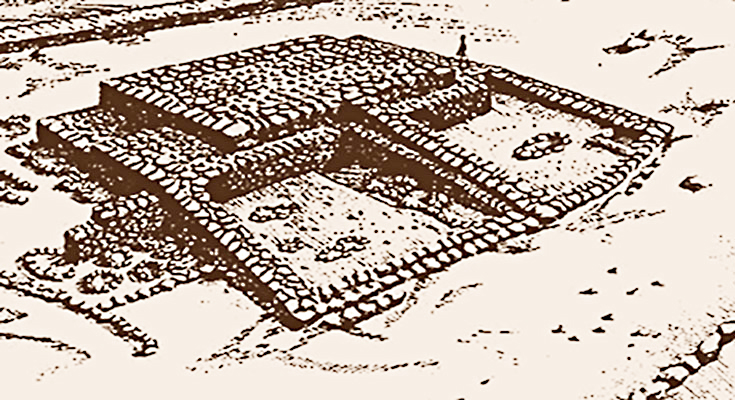
Image opposite: reconstruction of the altar on Mount Ebal. Adam Zertal, University of Haifa.
It was only while rereading the Scriptures that his attention was drawn to a little-known episode in the First Alliance (Old Testament): Joshua, Moses' successor, is said to have built a stone altar on Mount Ebal and offered sacrifices to the Hebrew god Yahweh (Deuteronomy chapter 11 verse 29, and chapter 27 verses 4 to 13; ; Josué chapter 8 verses 30 to 33).
This episode is part of the series of stories that follow the Exodus of the Hebrews at Sinai under the leadership of Moses. His successor Joshua led the entry of God's people into Canaan and the military conquest of the Promised Land. After the capture of Jericho, the Hebrew people went to Mount Ebal to perform this sacrificial rite, before continuing their successful advance into the land of Canaan.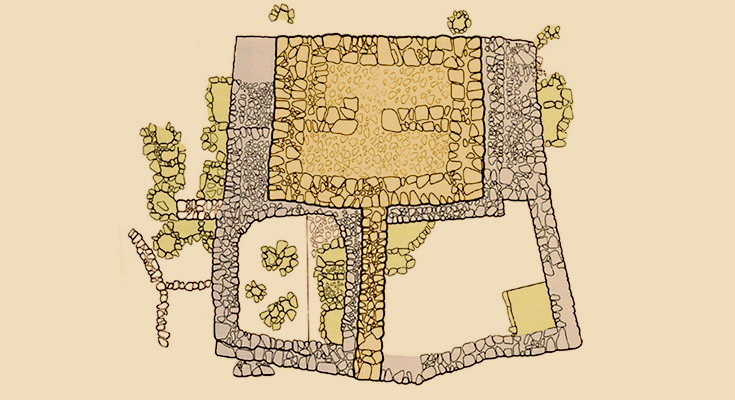
Image opposite: top view of the various parts of the Mount Ebal altar. Adam Zertal, University of Haifa.
A comparison is made between the structure uncovered and the documentation available on ancient altars. The researchers found that its design is identical to the description of an altar from the Jerusalem Temple built centuries later, confirming the site's cult status.
Adam Zertal's work was not limited to Mount Ebal. Numerous archaeological surveys were also carried out in Samaria on the supposed traces of the first Hebrews. Other geographical locations mentioned in Scripture have been identified with plausibility. The transmission of local lifestyles over the centuries is studied, as are agricultural techniques and dietary practices. An original scenario is proposed to explain the appearance of the Israeli nation in history.
A discovery with far-reaching societal implications
These results are published in the American journal Biblical Archaeology Review (BAR) in 1985, then in the Tel-Aviv University journal in 1987. An author's work in Hebrew, «‘Am nolad» (Birth of a nation), was published in 2000.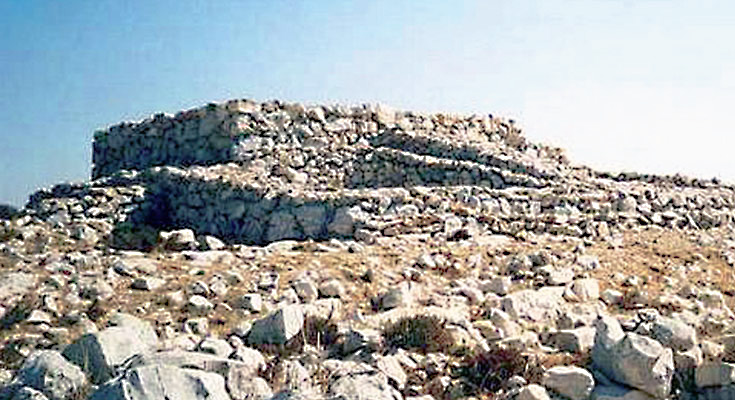
Image opposite: restoration of the altar is now complete. Adam Zertal, University of Haifa.
One particularity makes this archaeological site quite unique: the remains of Mount Ebal only make sense in the context of the Book of Joshua. There are very few ancient discoveries that unequivocally illustrate a biblical event. Mount Ebal is one of them.
The stakes raised by his discovery are not without incidence in the context of current politico-religious tensions. Yet Adam Zertal's sole aim is to advance historical knowledge.
At a time when the credibility of the First Covenant (Old Testament) is often questioned, its divergent voice claims that for once, the data on the ground is fully in line with the story. From this point of view, the Mount Ebal site could find its place in universal culture, in the same way as the Dead Sea Scrolls.
Information LPH Infos 12/02/2021
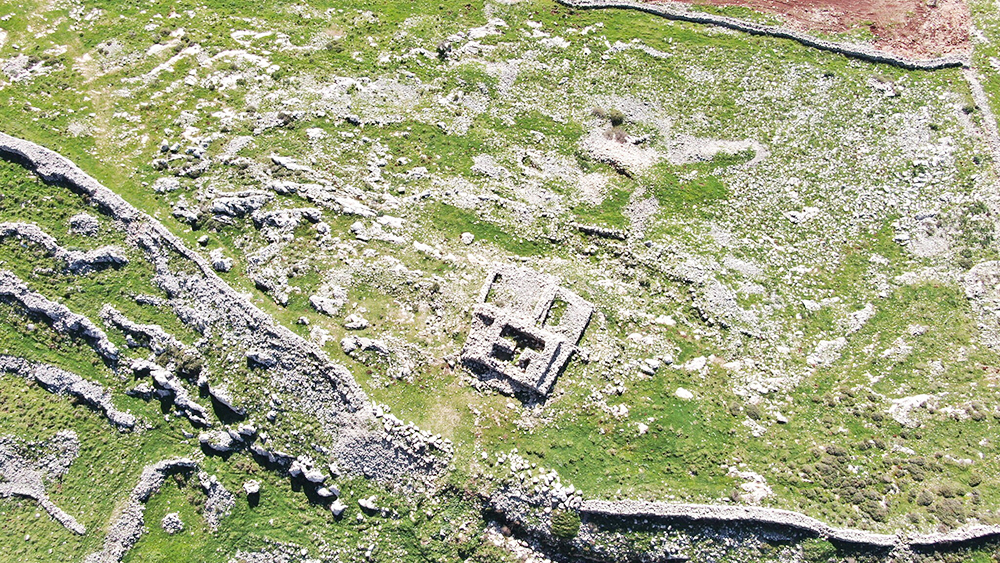
Image opposite: an aerial view of the altar at the Mount Ebal archaeological site, February 15, 2021. Shomrim Al Hanetzach.
More than thirty people, including archaeological professionals, took part in the operation to restore what could still be saved. Unfortunately, the twenty-metre-long northern enclosure was definitively destroyed.
Yossi Dagan, Chairman of the Samaria Regional Council, pointed out that the «Altar of Joshua» is not only a Jewish historical site, but also a world cultural heritage site that attracts international researchers. However, this did not provoke the slightest reaction from Unesco.
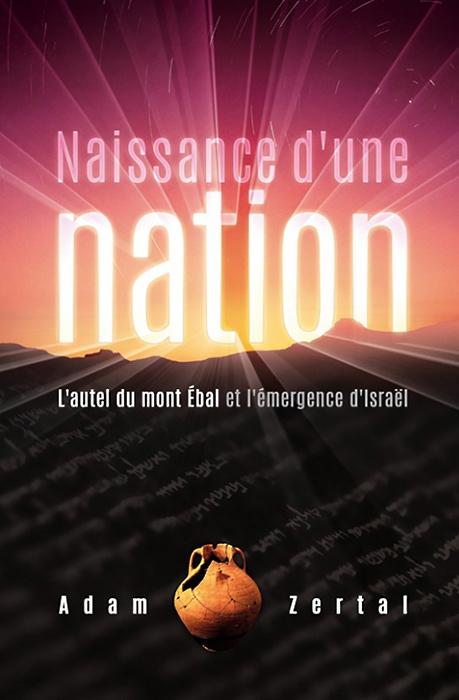
Find out more
ZERTAL Adam, Birth of a nation,
the altar of Mount Ebal and the emergence of Israel
Adam Zertal (1936 - 2015) was Chairman of the Department of Archaeology at the University of Haifa, in charge from 1978 of the mission The Manasseh Hill Country Survey in Samaria. Professor Adam Zertal was a specialist in the history of the biblical books of Joshua, Judges and Deuteronomy. He was an emeritus researcher at the University of Haifa.
Éditions Vida, Nîmes, 2015.

